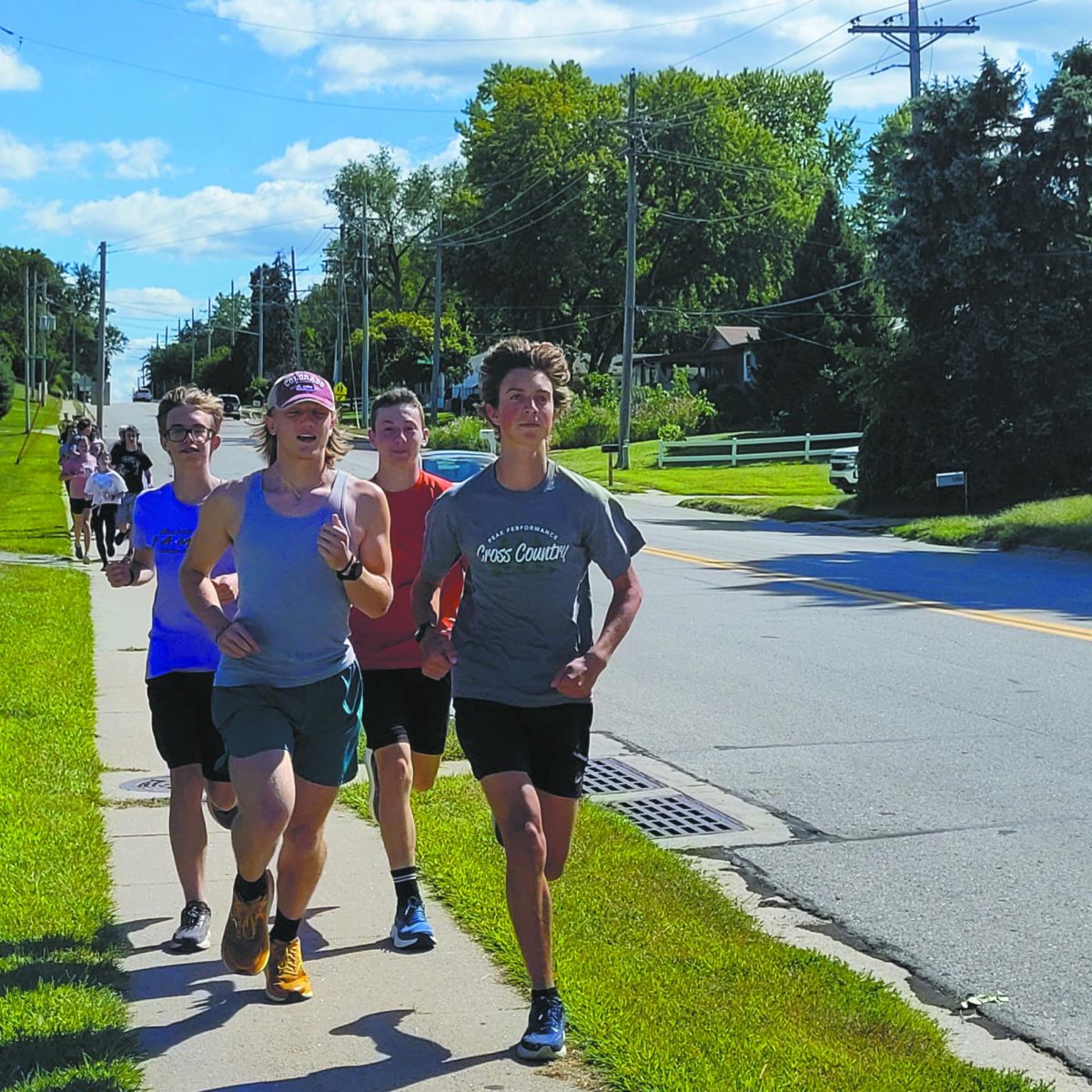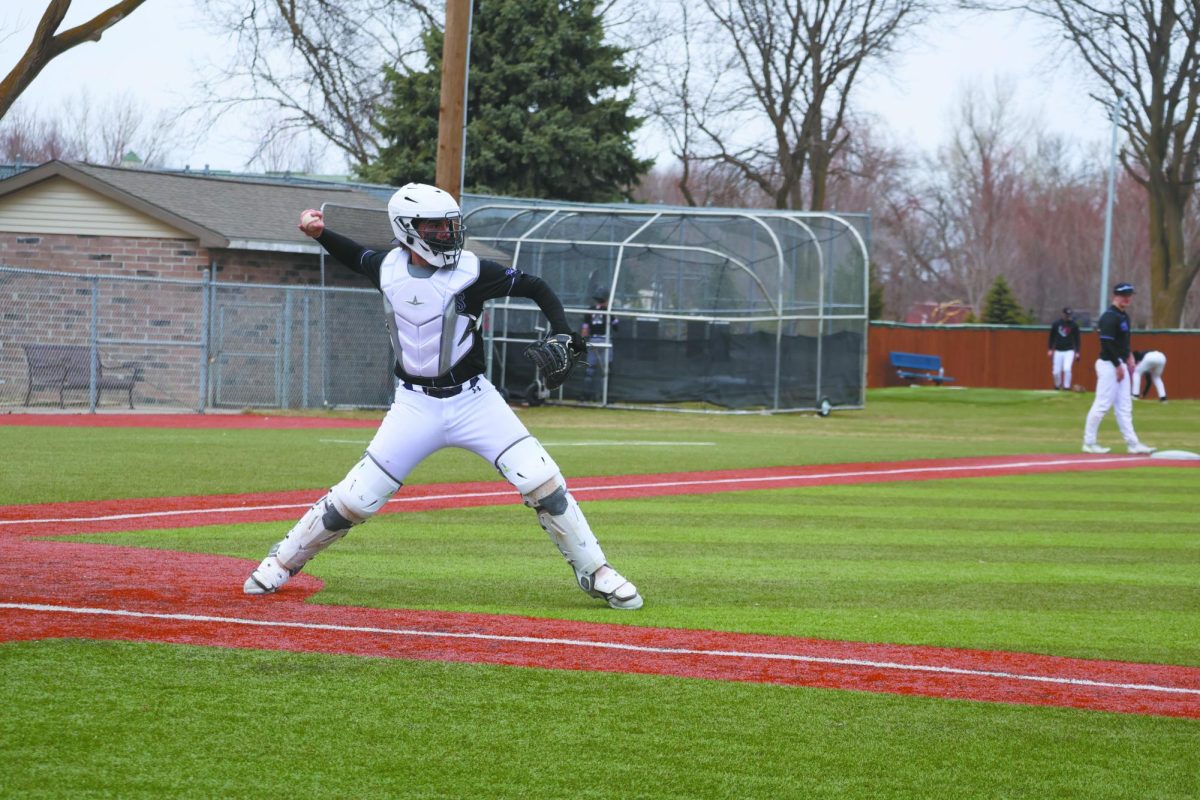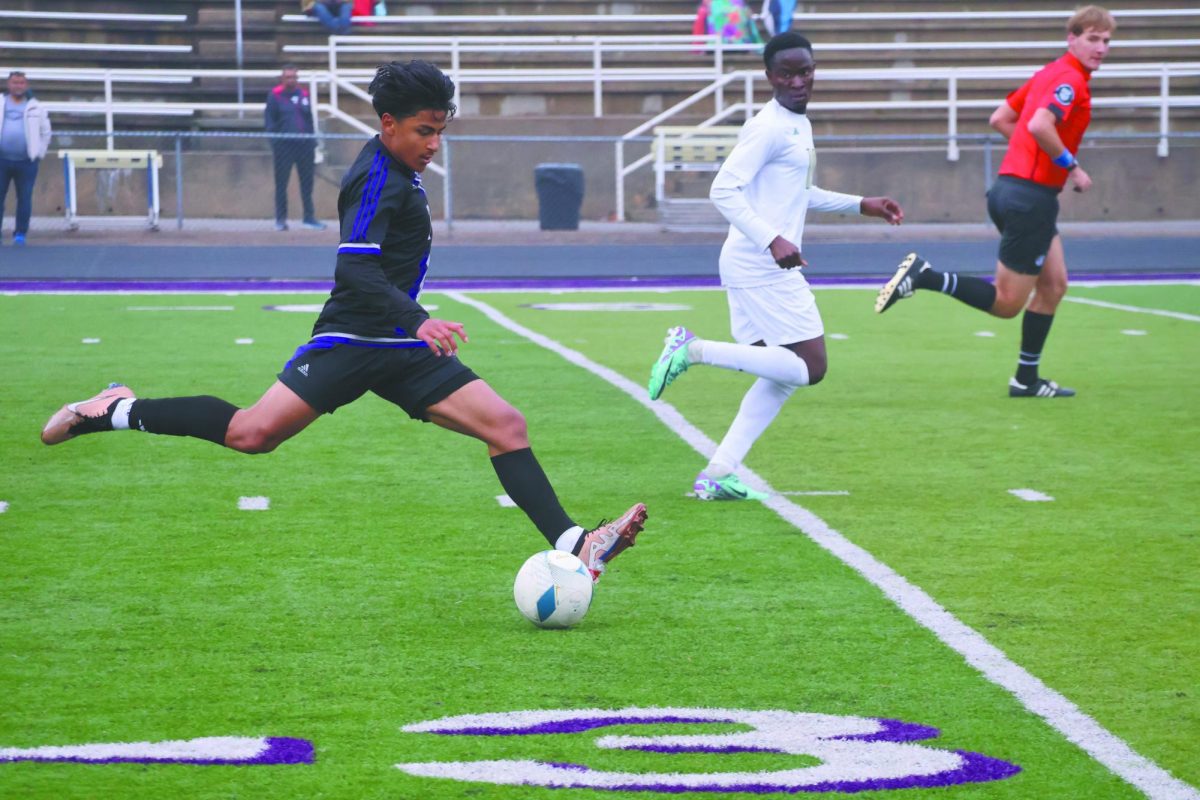The sun is shining, the air cool with a wispy breeze. All is relatively quiet at the front side of Bellevue East. Then comes the rhythmic pounding of shoes hitting the chalky ground, the swishy sound of panting runners, and the low murmur emanating from their bunches as they jog uphill for practice. What follows for East’s cross country team during practice sessions are the occasional call-outs from teammates when both heads and stamina dip low.
“You got it, you got it.”
“Just focus on your breathing.”
“You can do this!”
“Keep going!”
This is the necessary support athletes need to persevere.
Having a community in team sports like cross-country is critical for keeping athletes in a good headspace and provides the fundamental support many need to reach their full potential. But as things on the team change with people graduating and moving on, the successors find themselves having to forge a new path for their community.
“It makes me run faster, cause it’s like a legacy you’re trying to live up to, right?” sophomore Timothy Bogatz said. “You want to follow in their footsteps.”
Bogatz, a varsity cross-country runner at East, has been running cross country since middle school. He was close with a runner at East that moved away, but that still does not stop him now from inspiring others. Others such as junior John Paul.
“Our fastest runner right now is Timothy Bogatz,” Paul said. A varsity runner, Paul recalls a recent meet where alongside the support of Bogatz and the team, he decreased his run time by a whole eight minutes compared to the previous year. “Even though [Tim] had finished a 5K race, which is exhausting, he still stood up and cheered everybody on, and I did the same as I recovered.”
Instructor Connor Mazzei is the head coach of the cross-country team at Bellevue East. He recognizes just how crucial support is for his athletes.
“[Community] is, I think, one of the most important parts of cross country,” Mazzei said. “It’s a very difficult and physically demanding sport. The ability for comradery and achieving individual and team goals is an important life skill. Community provides the tools and the means to accomplish that.”
Mazzei said the 2022 season was one of the team’s best, with many scholarships gained and even a student qualifying for state. Now those athletes have moved on to bigger things. Despite the loss of some valuable team members, Coach Mazzei remains on the optimistic side this season, as more valuable runners are made.
“It ultimately is somewhat empowering to others,” Mazzei said. “The underclassmen, as they grow into upperclassmen, see the successes of our student athletes, and as they transition into college and the workforce, it’s an opportunity for them to rise to the occasion. And they frequently do. I have a lot of hopes this year after a really successful past couple of seasons.”
Evidence in sportsmanship certainly seems to point to the fact that they are “rising to the occasion”. The team makes sure to keep spirits high.
“We all try to hype each other up, even when we’re just running our practices,” Paul said. “We always try to tell each other ‘good job’ or ‘keep it up’, and ‘you’re doing good’. Especially on meets, too.”
And there’s a reason for it. According to an article published in Nature, peer support stimulates mental toughness, and increases problem-solving skills. But it especially decreases the perceived risk of adversity, which is crucial in high-stress situations like sports when the athlete’s body is tuned to perform.
“[A team] keeps you responsible,” Paul said. “Because if it was purely up to you, it’s really hard to motivate yourself to go outside and run. Especially when you don’t feel like it, or don’t have a lot of energy, it can be really hard.”
The benefits of team culture don’t stop there. Army and Navy Academy writes that team sports also increase fitness, discipline, and resilience in young people.
“Not surprisingly, other benefits of playing team sports include strengthening spiritual health in teens through leadership training, character development, and through shared values,” they write.
There is no wondering why the team is so important to the runners. And with their support, there comes rising potential and new leaders to take charge.
“They help support you and keep you going on your tough days, and your bad runs,” Bogatz said. “They inspire me.”



![Changing the game. Head coach Benjamin Dalton [LEFT] talks to two tennis players, junior Taylor Jarrett and senior Leonidas Greaves [RIGHT] to coach them through a technique to make them better tennis players. Dalton was an assistant coach last year, but this is the first year he is head coach."The head coach has a lot more of getting everything in place," Dalton said.](https://beaststudentmedia.org/wp-content/uploads/2025/09/tennis-pic-for-web-1200x800.jpg)

